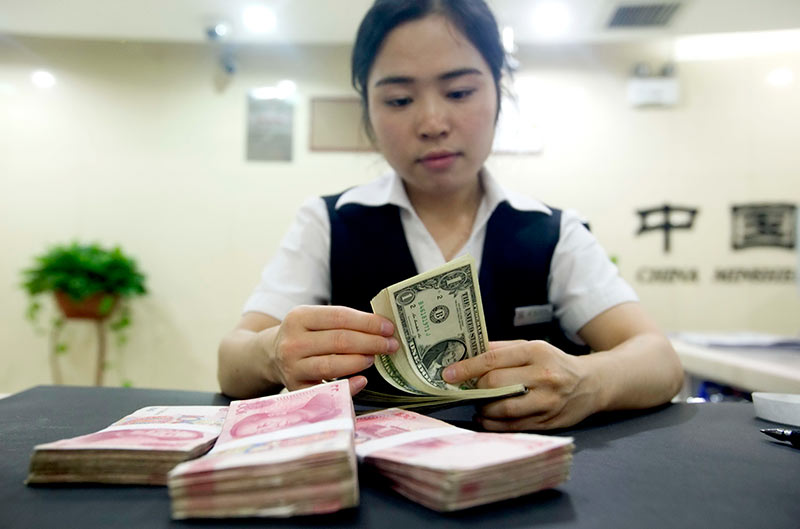Nation sees balanced cross-border capital flows


Net purchases of $13.8 billion forex in H1 reflect strength of RMB
China saw generally balanced cross-border capital flows in the first half, while sound economic fundamentals and improving forex management could help the nation better manage capital outflows, the foreign exchange regulator said on Thursday.
In the first six months of this year, Chinese lenders registered net forex purchases of $13.8 billion, reversing a net sales of $93.8 billion for the same period last year, Wang Chunying, spokeswoman of the State Administration of Foreign Exchange, said at a news conference on Thursday.
In the first quarter, net forex sales stood at $18.3 billion, which turned into a net purchase of $32 billion in the second quarter, according to Wang.
"The limited scale of net forex purchases and sales this year reflected a generally balanced supply-demand relationship between the renminbi and foreign exchange, Liu Chunsheng, an associate professor at Central University of Finance and Economics, told China Daily.
A net forex purchase indicates that more renminbi is required than foreign exchange in the market, and net sales indicate the opposite.
"The change from net forex sales a year earlier to net purchases this year revealed the market's confidence in China's economic development and the renminbi," Liu added.
"The renminbi remains a relatively stable and strong currency across the world, despite the increased two-way volatility of its exchange rate against the dollar in the first half," Wang said. "According to the Bank for International Settlements, the nominal effective exchange rate of the renminbi, or the rate against a trade-weighted basket of partner currencies, rose 2.8 percent in the first six months, ranking 10th among the 61 currencies monitored by the bank."
Stable economic development will help China well manage the potential capital outflow caused by external factors, including the ongoing interest rate hike by the Fed and the China-US trade row, according to Wang.
Relatively sound economic fundamentals, high returns on investment and the increasing demand for renminbi asset allocation will counteract the impact of higher interest rates in the US, Wang said.
"An interest rate difference does affect cross-border capital flows, but it is not the only factor, nor the most fundamental one," said Wang, citing the circumstances when China had lower interest rates than the US but faced net capital inflows from 2006 to 2007.
To further prevent the risk of cross-border capital flows, Wang vowed to "improve and optimize macro-prudential management and micro-level market supervision".
Macro-prudential management, according to Wang, mainly involves establishing and improving a mechanism that can monitor, warn about and respond to the risks of cross-border capital flows, as well as enriching and adjusting the management toolkit.
"We are able and confident to tackle different challenges," she said.




































